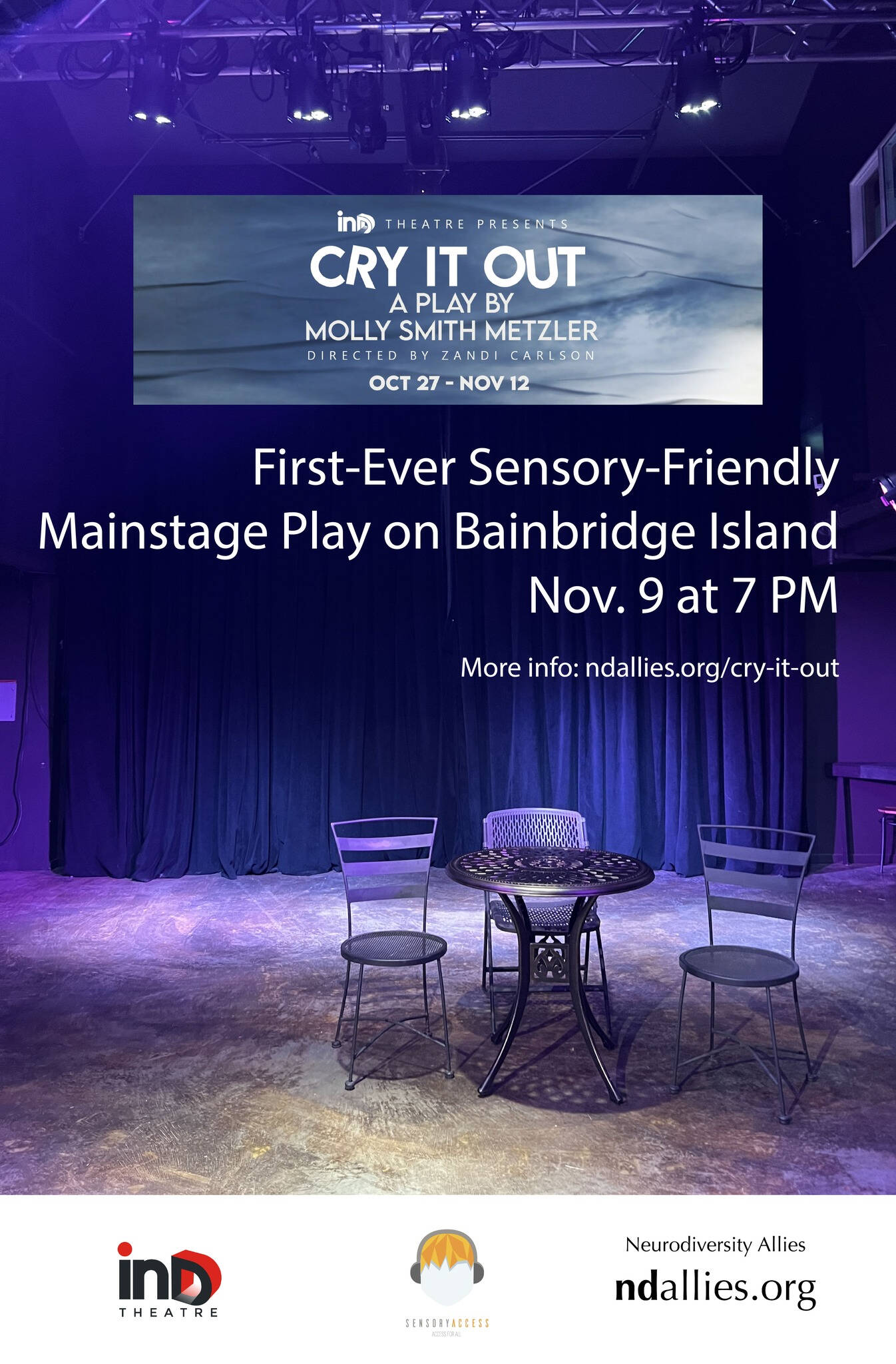A sensory-friendly show for neurodivergent adults will be performed at Rolling Bay Hall Nov. 9 at 7 p.m. on Bainbridge Island.
Brian Guy, co-founder of Neurodivergent Allies, said, “This is common practice in Seattle, but has never happened on the island before.”
This performance is a collaboration of inD Theatre, Sensory Access and Neurodiversity Allies. inD Theatre supports independent productions focused on the actor and promotes minimalist shows and creative selection of venues that allow the organization to make experiences accessible to all community members. Performances are always presented without a fee to bring the joy of live theatre and other arts experiences to the neurodivergent community.
Cry It Out, a dark comedy about women shifting into parenthood and the impossible nuances they face without the luxury of hindsight or a full night’s sleep, was written by Molly Smith Metzler and directed by Zandi Carlson.
A sensory-inclusive performance modifies the music and elements of a show and provides a guide for the etiquette and expectations of the audience to accommodate neurodivergent patrons. Neurodivergent patrons are welcome in the main auditorium in a judgment-free environment. During the performance, these patrons may use fidget devices, electronic devices and other accommodations. They may get up and step out during the performance. Sensory spaces outside the auditorium should exist for children and adults separately, as neurodivergent adult attendees have different needs from children. Attendees should never be proactively directed to the sensory space, as the goal is inclusion, not segregation.
“As a person in the neurodivergent community, I am proud that we are taking actionable steps to be more accessible and inclusive so that everyone can enjoy theatre. We can’t wait to share this show with you,” Carlson said.
“Sensory accessibility is increasingly a priority for arts organizations, and neurodivergent community members should be able to enjoy live theatre in the main auditorium alongside their community,” Guy said. “Sensory-friendly performances are how theatres make this happen.”
While Sensory-friendly performances have been taking off in larger cities, including Seattle, smaller community theatres don’t always know how to get started nor how to pay for it. “We created Neurodiversity Allies to help bring this accessibility and inclusion to more theatres, including community theatres.”
Seattle-based Sensory Access helps organizations all over the world implement Sensory-accessible productions. Co-founder Daniela Ferdico said: “Our goal at Sensory Access has always been to help remove the barriers neurodivergent individuals face when accessing the arts. The sense of community we build when we share moments in live music and theatre are priceless, and it is critical to have such accessibility available not only at the largest venues but also at the small community stages.”
For reservations, visit indtheatre.org/cry-it-out and select the Nov. 9 show for the Sensory-Friendly performance.



